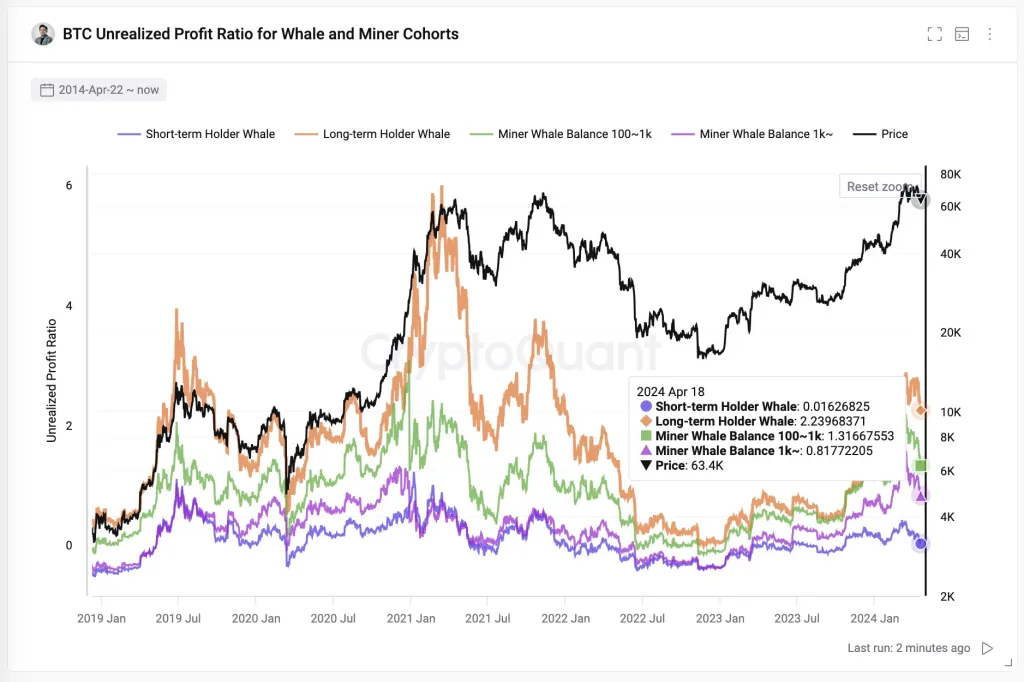As Bitcoin halves and ushers in the fifth epoch in April, Ki Young Ju, the founder of the crypto analytics platform CryptoQuant, has unveiled some interesting profitability statistics for various entities. Ju took X to highlight the unrealized profits across different investor groups, unveiling a clear winner: old whales.
Bitcoin Rewards Old Whales, Miners
According to the data, seasoned Bitcoin investors, often called “old whales,” have seen a staggering 223% increase in unrealized profits. This suggests that their long-term holding strategy has paid off handsomely, with rising prices over the years and months significantly boosting their holdings.

At the same time, investors entering the market through traditional finance (TradFi) and exchange-traded funds (ETFs), categorized as “new whales,” have seen a more modest increase of 1.6% in unrealized profits. This could be attributed to their shorter investment timeframe and lower average cost basis than old whales.
DeFi took off in early 2020 after crossing the $1 billion mark, while spot Bitcoin ETFs, especially in the United States, are gaining traction after the Securities and Exchange Commission (SEC) approved these products in January 2024.
Interestingly, small miners and large mining companies like Riot Blockchain and Marathon Digital have also seen decent gains. Small miners, often individuals or small operations, saw their unrealized profits increase by 131%.
Meanwhile, big miners, typically established mining companies listed in various bourses worldwide, saw an 81% increase in unrealized profits. From this data, it is clear that prices have been rising since October 2023, a significant boost going into the next epoch, which is expected to be more competitive.
Hash Rate: A Key Metric To Watch Post-Halving
Making inferences from this data, it is clear that early adopters are the biggest beneficiaries, riding the surge over the years. However, miners of all categories have also been rewarded handsomely.
Still, it is yet to be seen how miners adjust their operations to be competitive while also earning revenue. Though the hash rate might drop in the days ahead, big miners won’t be affected as much but will likely consolidate their positions. Meanwhile, small miners could be shaken off, leading to miner centralization over time.
Over the long run, the hash rate will be a crucial metric. If prices rise as expected, miners will be incentivized to invest in new gear, boosting the network security.
Related Reading: Komodo CTO Warns That Bitcoin Is Becoming Too Centralized, Here’s Why
If not, and prices plunge as seen in Litecoin and Bitcoin Cash post-halving, there will be a series of difficulty adjustments, further cementing the control of large crypto mining farms.




